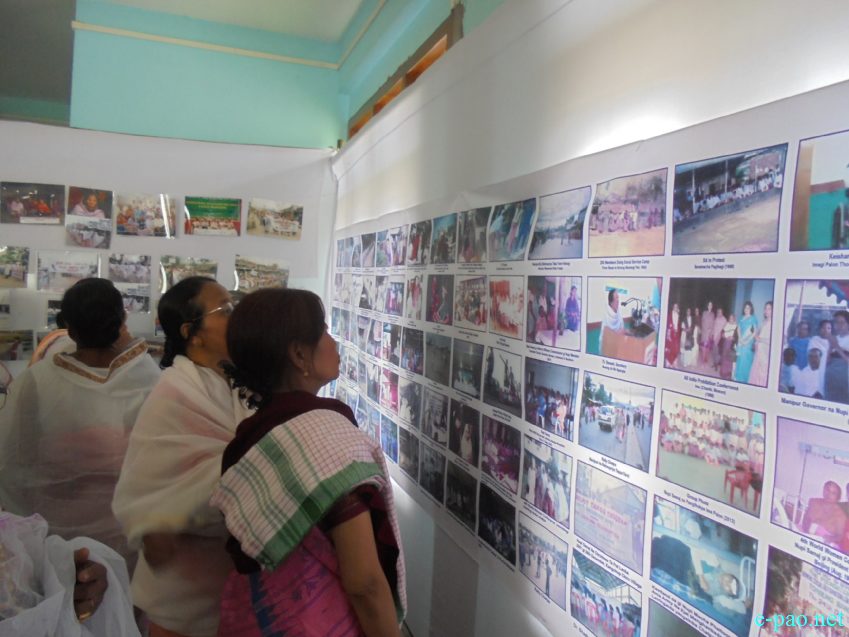
International Day in Support of Victims of Torture observed at Manipur Press Club, Imphal on June 26 2014 :: Pix - Lamdamba Oinam
26th June : International Day in support of victims of torture
Dr RK Lenin Singh / Dr Steve Cherak R Marak *

International Day in Support of Victims of Torture observed at Manipur Press Club, Imphal on June 26 2014 :: Pix - Lamdamba Oinam
This is a day on which we pay our respects to those who have endured the unimaginable.
This is an occasion for the world to speak up against the unspeakable. It is long overdue that a day be dedicated to remembering and supporting the many victims and survivors of torture around the world.
- Former United Nations Secretary General Kofi Annan, 1998.
On 12 December, 1997, by resolution 52/149, the UN General Assembly proclaimed 26 June, the International Day in Support of Victims of Torture, with a view to total eradication of torture. The day was selected by the United Nations General Assembly for two reasons.
First, on 26th June 1945, the United Nations Charter was signed during the midst of World War II–the first International instrument obliging UN members to respect and promote human rights.
Second, 26th June 1987 was when the United Nations Convention against Torture and Other Cruel, Inhuman or Degrading Treatment or Punishment came into effect, which is the key instrument in fighting torture.
The decision to annually observe the International day in Support of Victims of Torture was taken by the UN General Assembly at the proposal of Denmark, which is home to the world renowned International Rehabilitation Council for Torture Victims (IRCT).
The first 26 June events were launched in 1998. Since then, nearly 100 organizations in dozens of countries all over the world mark the day each year with events, celebrations and campaigns.
Torture: A Crime against Humanity
'Torture' means any act by which severe pain or suffering, whether physical or mental, is intentionally inflicted on a person for such purposes as obtaining from him or a third person information or a confession, punishing him for an act he or a third person has committed or is suspected of having committed, or intimidating or coercing him or a third person, or for any reason based on discrimination of any kind, when such pain or suffering is inflicted by or at the instigation of or with the consent or acquiescence of public official or other person acting in an official capacity.
Torture victims come from all walks of life : men, women, and heartbreakingly, a growing number of children. They are indigenous people and minorities; human rights defenders, political opponents and journalists; migrants; people with disabilities; people who are lesbian, gay, bisexual, Trans or intersex; or simply inhabitants of certain neighborhoods. They are selected for torture at random, or targeted and hunted down.
Torture seeks to annihilate the victim's personality and denies the inherent dignity of the human being. Despite the absolute prohibition of torture under international law, torture persist in all regions of the world. Its pervasive consequences often go beyond the isolated act on an individual; and can be transmitted through generations and lead to cycles of violence.
Psychological impact of Torture
The psychological consequences of torture occur in the context of the individual torture survivor's personality, personal attribution of meaning, and social, political and cultural factors.
Common psychological symptoms include hyper arousal (difficulty falling or staying asleep; irritability; difficulty concentrating), anxiety, avoidance, emotional numbing, detachment, low mood, paranoia, nightmares, flashbacks, and multiple pains over body, mistrust, sexual dysfunction among others.
Healing through Rehabilitation
Recovering from torture is possible. It requires prompt and specialized programmes. The victim's path from horror to healing relies on the expertise and dedication of doctors, lawyers, therapists and social workers. Their daily work with victims of torture is often made possible with the support of the UN Fund for Victims of Torture.
Psychological interventions of the problems involves non-pharmacological approaches either in addition to medication or as the primary treatment modality. Survivors of torture should consider taking help from the psychiatrists, psychologists or the specialist service for survivors of trauma and torture.
So, on this day let us all raise awareness among the people about the human torture that it is not only unacceptable but it is also a crime.